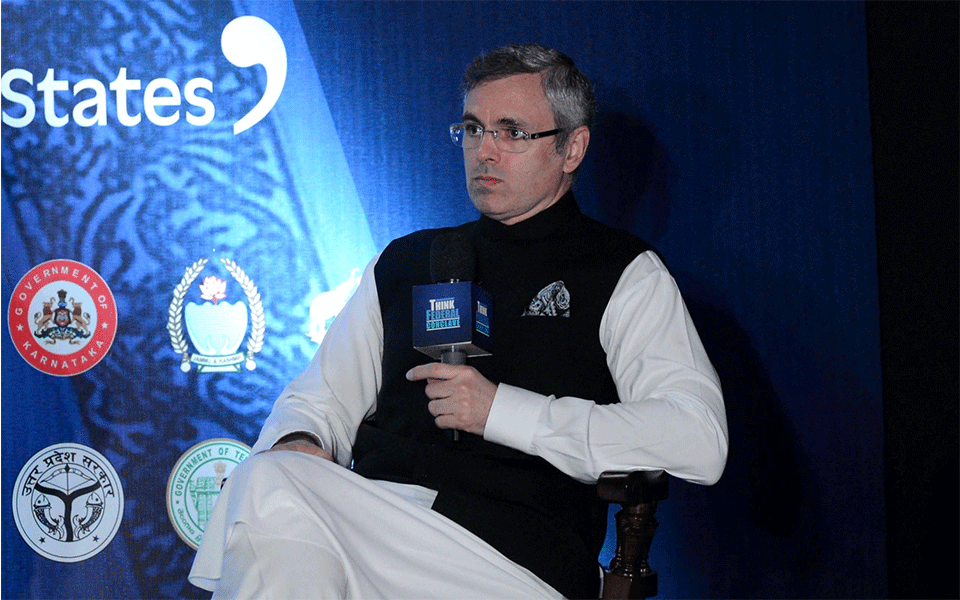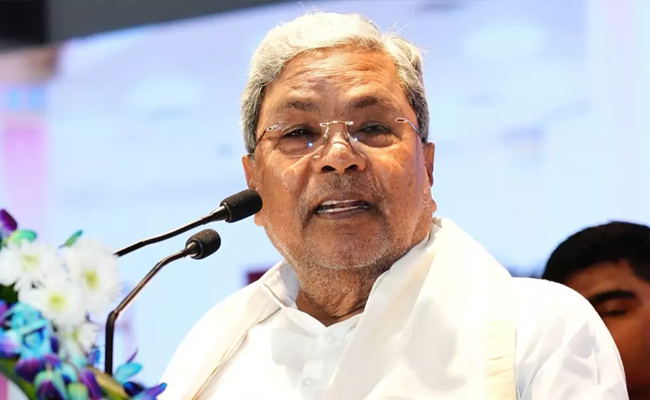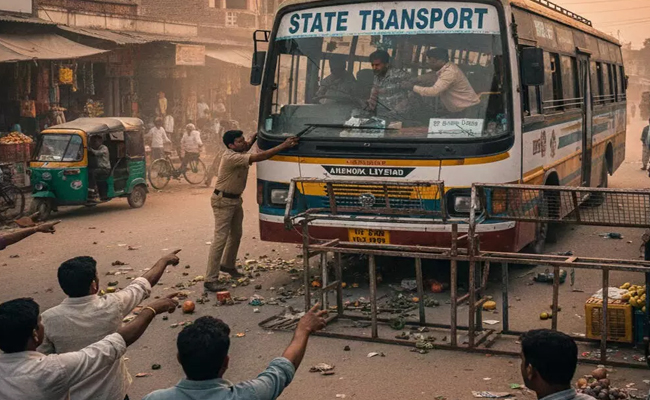Kolkata, July 28 : Former Jammu & Kashmir Chief Minister Omar Abdullah on Saturday said the proposed Federal Front will take a "greater shape" before the 2019 general elections and no effort for opposition unity will succeed unless the Congress is able to take the fight to the BJP.
"We were discussing how best the regional parties can come together to take on the Bharatiya Janata Party (BJP) in the forthcoming general elections. Obviously, no effort towards opposition unity will really succeed unless the Congress is also able to take the fight to the BJP the way we hope," the Jammu and Kashmir National Conference leader said on the sidelines of an event -- Think Federal Conclave.
Abdullah, who met West Bengal Chief Minister Mamata Banerjee on Friday, said this is "an ongoing conversation".
"It (forming a Federal Front) is an ongoing process and as we get closer to general elections of 2019, I am sure it will take greater shape," he said. "You have seen a number of efforts were made by (former Congress President) Sonia Gandhi to bring opposition parties together."
Abdullah pointed at the presence of opposition leaders at the swearing-in of Karnataka Chief Minister H.D. Kumaraswamy and said more such attempts would be made in other states as well.
Speaking on Jammu & Kashmir, he reiterated his party's demand that the assembly be dissolved and efforts made to improve the overall situation in the state.
The state is currently under Governor's rule after Chief Minister and PDP leader Mehbooba Mufti resigned following the BJP quitting her government and walking out of the alliance.
According to Abdullah, the situation should be like what it was there in 2014, when the assembly election was conducted in November-December.
"Discussion for conducting the elections can be started after improvement in the situation. Under the prevailing situation, there is no scope for discussion on the elections," he said.
Asked whether the India-Pakistan relationship will improve with a new government coming in power in the neighbouring country, he said let the new government be formed first.
"Let Imran Khan form the government. He has never been in power before.
"There is a need to see what kind of relationship Islamabad wants with India and what is their approach regarding terrorism in Jammu and Kashmir and the 26/11 Mumbai terror attack," Abdullah said.
Let the Truth be known. If you read VB and like VB, please be a VB Supporter and Help us deliver the Truth to one and all.
Mumbai (PTI): Rupee depreciated 9 paise to an all-time low of 90.58 against US dollar in early trade on Monday, weighed down by uncertainty over an India-US trade deal and persistent foreign fund outflows.
Forex traders said rupee is trading with a negative bias as investors are in wait and watch mode and awaiting cues from the India-US trade deal front.
At the interbank foreign exchange market, the rupee opened at 90.53 against the US dollar, then fell further to an all-time intraday low of 90.58 against the greenback, registering a fall of 9 paise over its previous close.
On Friday, the rupee had slipped 17 paise to close at an all-time low of 90.49 against the American currency.
Meanwhile, the dollar index, which gauges the greenback's strength against a basket of six currencies, was trading 0.05 per cent lower at 98.35.
Brent crude, the global oil benchmark, was trading higher by 0.52 per cent at USD 61.44 per barrel in futures trade.
On the domestic equity market front, the 30-share benchmark index Sensex was trading 298.86 points lower at 84,968.80, while the Nifty was down 121.40 points at 25,925.55.
Foreign Institutional Investors sold equities worth Rs 1,114.22 crore on Friday, according to exchange data.
"FPIs continue to be in selling mode in equity and debt while RBI has been selling dollars to fund their long positions," said Anil Kumar Bhansali, Head of Treasury and Executive Director Finrex Treasury Advisors LLP.





